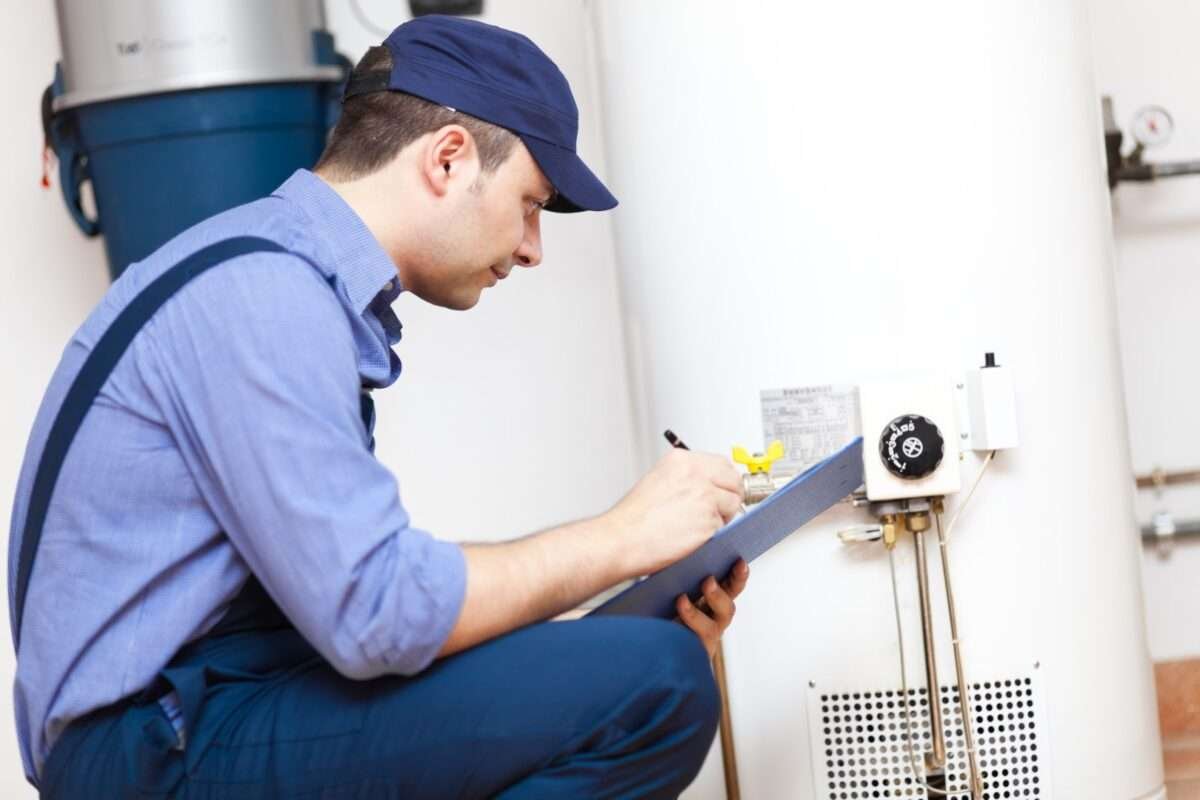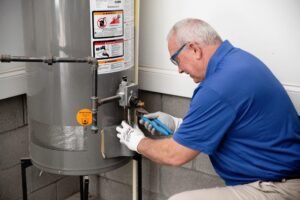
When purchasing a water heater, whether it’s a gas water heater, electric water heater, or instant water heater, one crucial aspect to consider is the warranty. Water heater warranties can offer peace of mind, protecting you from unexpected costs if your unit malfunctions. However, not all warranties are created equal, and understanding what’s covered and what’s not can make a significant difference in the longevity and performance of your water heater.
In this article, we’ll dive into the details of water heater warranties, explore their common features, and explain how they vary between different types of heaters. We’ll also cover the factors that affect water heater price in the USA and what to look for when selecting the best water heater for your needs.

Table of Contents
What is a Water Heater Warranty?
A water heater warranty is a guarantee provided by the manufacturer or retailer, promising to repair or replace parts of the unit if it malfunctions within a specified time. Warranties are designed to protect the buyer from defects in materials or workmanship. Depending on the type of water heater, the warranty can last anywhere from 3 to 12 years.
There are two main types of warranties to look out for:
- Manufacturer’s Warranty: This covers the replacement of defective parts or the entire unit within the warranty period.
- Labor Warranty: This warranty covers the cost of labor if repairs or replacements are needed.
Both types of warranties can save you money on repairs, but it’s essential to understand the fine print to avoid unexpected expenses.
Types of Water Heater Warranties
1. Gas Water Heater Warranties
Gas water heaters typically come with warranties that cover both the tank and the parts. The average warranty length for gas water heaters ranges from 6 to 12 years for the tank and 1 to 3 years for the parts. However, certain high-end models may offer longer warranties.
What’s Covered:
- Tank replacement if a leak occurs.
- Replacement parts like thermostats or heating elements.
- Possible labor coverage depending on the manufacturer.
What’s Not Covered:
- Damage due to improper installation or maintenance.
- Sediment build-up inside the tank.
- Damage caused by natural disasters or poor water quality.
2. Electric Water Heater Warranties
Electric water heaters are typically more affordable than gas models, and their warranties generally fall within the same range, around 6 to 12 years for tank replacement and 1 to 3 years for parts. However, the specifics of what’s covered can vary significantly depending on the brand.
What’s Covered:
- Leaks in the storage tank.
- Defective heating elements.
- Thermostat issues.
What’s Not Covered:
- Regular wear and tear, such as corrosion from hard water.
- Any damage resulting from improper installation or failure to maintain the heater.
3. Instant Water Heater Warranties
Instant water heaters (also known as tankless water heaters) usually have shorter warranties for parts but longer ones for the heat exchanger, as this is a crucial part of the unit. Instant water heaters often come with a 5-12 year warranty for the heat exchanger and 1-5 years for other components.
What’s Covered:
- Heat exchanger issues, including defects or failure.
- Electrical parts such as thermostats or sensors.
What’s Not Covered:
- Issues due to incorrect installation.
- Damage from water quality issues, such as scaling or mineral build-up.
What to Look for in a Water Heater Warranty
When choosing a water heater, whether it’s the best water heater for your needs or the most affordable option, pay close attention to the details of the warranty. Here are a few factors to consider:
1. Warranty Length
Longer warranties often indicate higher-quality units. A 12-year warranty might suggest the heater is built to last longer than one with a 6-year warranty. If you’re comparing water heater prices in the USA, a model with a longer warranty might justify a higher upfront cost due to the added protection.
2. Coverage Details
Make sure you understand exactly what’s covered. Some warranties only cover the tank, while others include parts and labor. Tank warranties are especially important because a leaking tank can cause significant damage and may require a full replacement.
3. Transferability
Some warranties are transferable, meaning if you sell your home, the warranty can pass to the new owner. This can be a great selling point and provide additional value when selling your home.
4. Registration Requirements
Many manufacturers require you to register your water heater within a specific period after purchase for the warranty to be valid. Failing to do so could result in a void warranty, so make sure to complete this step.
Common Exclusions in Water Heater Warranties
While warranties can offer significant coverage, there are common exclusions you need to be aware of:
- Improper Installation: If your water heater isn’t installed by a licensed professional, the warranty may not be honored.
- Lack of Maintenance: Manufacturers may require regular maintenance, such as flushing the tank or checking the pressure valve, for the warranty to remain valid.
- Water Quality Issues: Hard water or high levels of minerals in your water supply can cause damage to your heater. Most warranties don’t cover issues related to poor water quality, such as scaling or sediment build-up.
How to Maximize Your Water Heater Warranty
To ensure you get the most out of your warranty, follow these best practices:
- Professional Installation: Always have your water heater installed by a licensed professional to avoid voiding the warranty.
- Regular Maintenance: Perform regular maintenance, such as flushing the tank and inspecting for leaks, to keep your unit running smoothly and within warranty coverage.
- Document Everything: Keep a record of your water heater’s purchase, installation, and any maintenance performed. This documentation can be essential if you need to file a warranty claim.
Water Heater Price in the USA and How Warranties Impact It
When evaluating the water heater price in the USA, it’s important to factor in the warranty. While units with longer or more comprehensive warranties may come with a higher upfront cost, they can save you money in the long run by reducing repair and replacement expenses.
For example, a gas water heater with a 12-year warranty might cost more than one with a 6-year warranty, but the added protection can provide peace of mind and better value over time. Similarly, the best water heater for your home might not be the cheapest, but rather the one with the best warranty to suit your needs.
Conclusion
Water heater warranties can be a key factor when choosing between a gas water heater, electric water heater, or instant water heater. Understanding what’s covered and what’s not can help you make an informed decision and avoid unexpected costs. Always read the fine print, consider the warranty length, and follow the required maintenance guidelines to keep your unit protected. Whether you’re prioritizing affordability, longevity, or eco-friendliness, the warranty can play a significant role in the value of your investment.

FAQs
1. Do water heater warranties cover labor costs?
Some warranties cover labor, but many do not. Always check the terms of your specific warranty for details.
2. How often should I maintain my water heater to keep the warranty valid?
Most manufacturers recommend annual maintenance, including flushing the tank and checking key components like the pressure valve.
3. Can a warranty be voided if I install the water heater myself?
Yes, many manufacturers require professional installation to keep the warranty valid.
4. Are water heater warranties transferable if I sell my home?
Some warranties are transferable, but not all. Check with the manufacturer to confirm if your warranty can transfer to a new owner.
5. What happens if I don’t register my water heater’s warranty?
Failing to register your warranty could result in a shorter coverage period or void the warranty entirely. Always register within the timeframe specified by the manufacturer.






